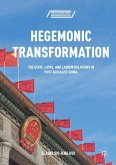This thesis aims to contribute to the discourse of masculinity in the context of work, family life and individual life purpose of men, through the case of young Japanese salarymen. It postulates that the hegemonic masculinity ideal in Japan is currently undergoing a transformation and attempts to uncover in which direction this transformation is headed. There is still a gender gap in various instances of patriarchal cultures, and though an abundant catalogue of feminist literature has continued to investigate the reasons for and developments of these gender gaps, I agree with masculinity researcher Harry Brod in that the key to the gender gap lies in the study of men, not women. (Brod, 1987). Examining the specific cases of twelve salarymen, this thesis illuminates their views with hegemonic masculinity, gender discrepancy, gender constructionist and gender boundary theories. It builds upon already existing empirical research of Tomoko Hidaka (2010), Masako Ishii-Kuntz (1993, 2003), Romit Dasgupta (2000, 2003), Gordon Mathews (2003) and to some degree, Anne Allison (1994).
Bitte wählen Sie Ihr Anliegen aus.
Rechnungen
Retourenschein anfordern
Bestellstatus
Storno








